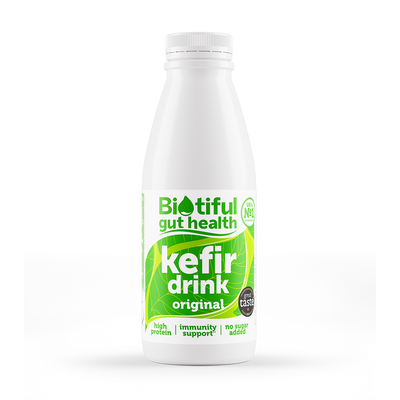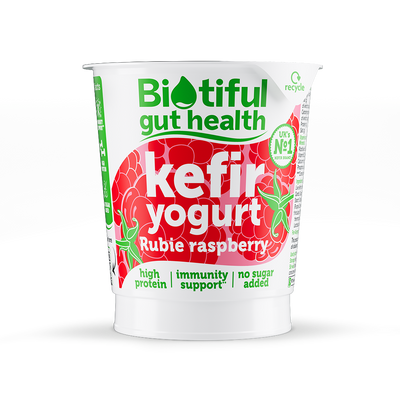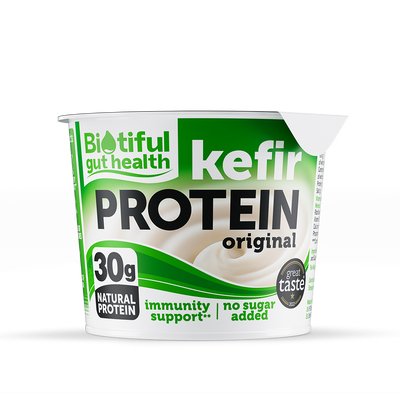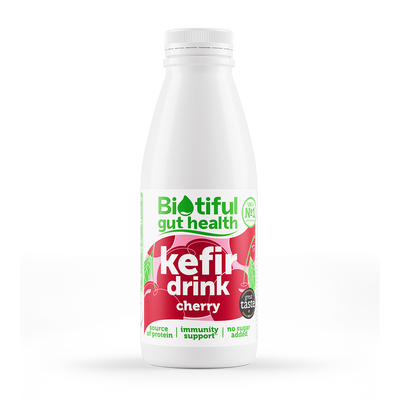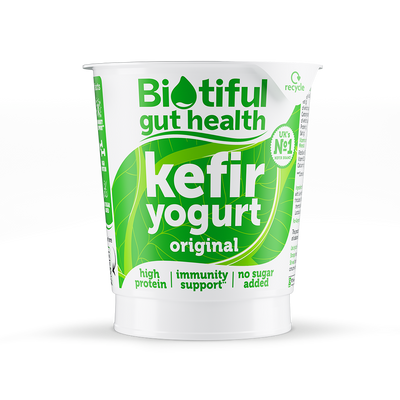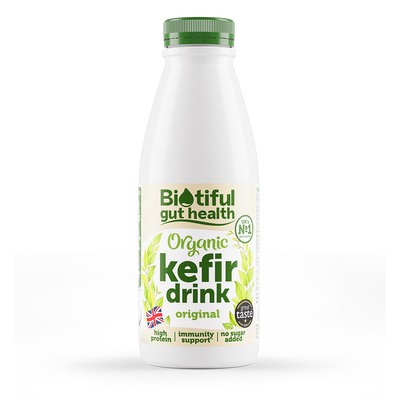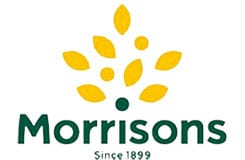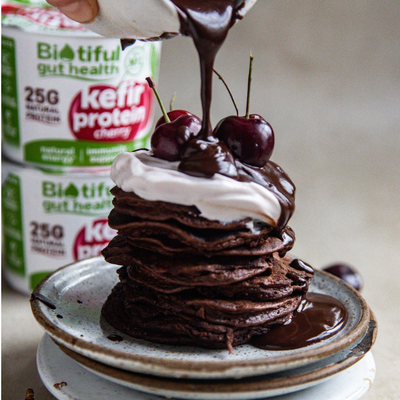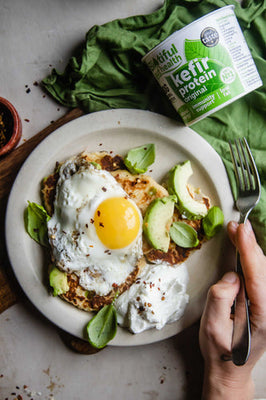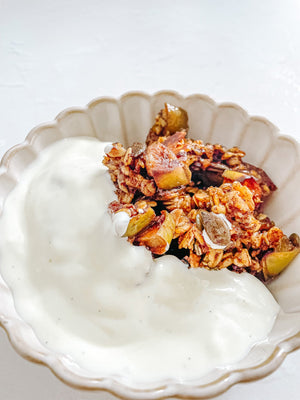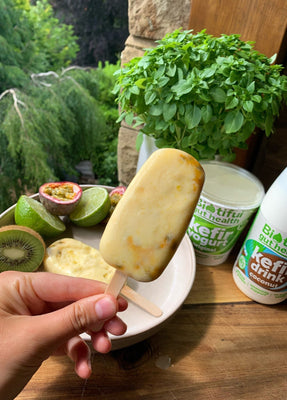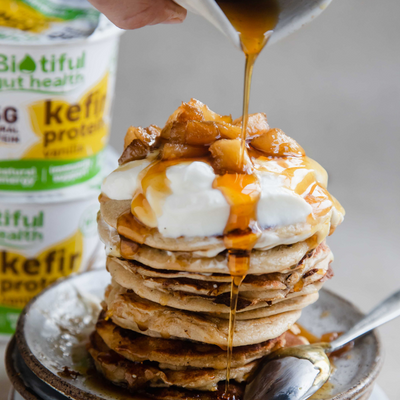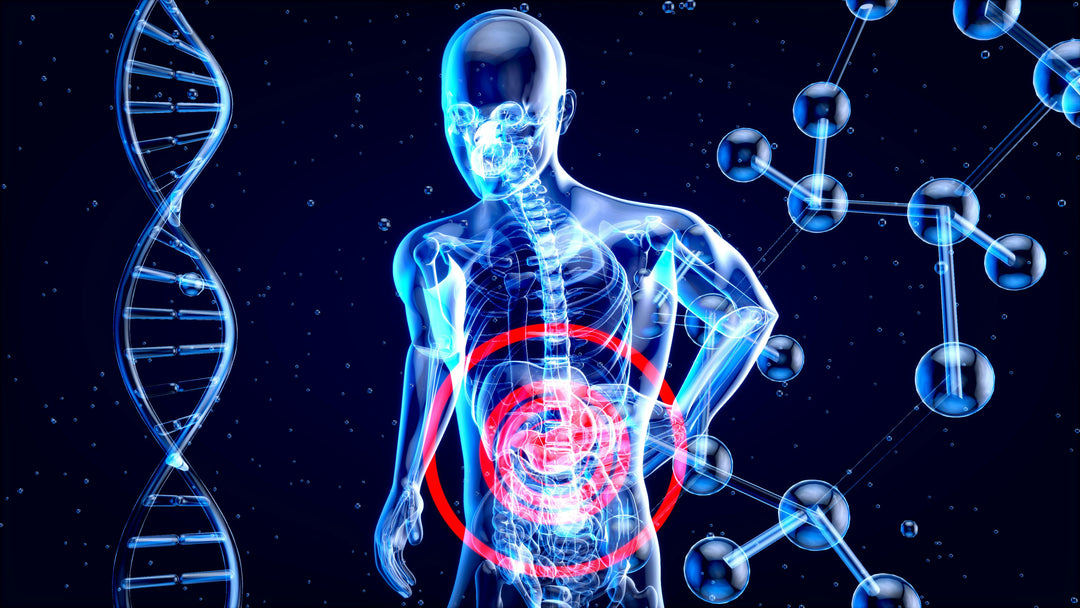
Research shows that disruptions in gut function and microbiome balance play a significant role in IBS symptoms, so understanding how closely IBS and your gut health are linked is key. Gut Health plays a key role in IBS, with the gut microbiome and overall gut function at the centre of both its symptoms and potential solutions. At Biotiful, we’re here to help you better understand the connection and support your gut every step of the way, with the help of Biotiful Kefir.
Shop our bestselling Kefir!
Supporting gut health to manage IBS


Frequently asked questions about IBS and gut health
Get the answers to some of the most frequently asked questions about gut health and IBS!
How do I support my gut health to help reduce symptoms of IBS?
If you have IBS and your gut health hasn’t been a priority as of yet, then you can make a real change to your gut health. By following certain steps, you can restore balance that may have been lost in your gut microbiome and reduce IBS symptoms. These steps include:
- Reducing your intake of disruptive foods (high FODMAP and ultra-processed)
- Increasing your intake of fermented foods that contain live cultures, like Kefir
- Increase the amount of fibre you eat
- Staying hydrated
- Limiting consumption of alcohol and sugar
Following these steps, you can reset your gut and have strong foundations in terms of fuelling the healthy bacteria in your gut. In turn, along with helping to relieve symptoms of IBS, when you improve your gut health, you can improve your immunity, your mood, manage weight in a healthy way and so much more.
What are the best foods for IBS and your gut?
The best foods to help people who have IBS are products that contain a variety of healthy bacteria to support IBS and a varied gut microbiome. Many people opt for supplements, however Biotiful Kefir is equally convenient and contains four different strains of healthy bacteria (Lactobacillus acidophilus, Lactobacillus rhamnosus, Lactobacillus lactis and Streptococcus thermonphilus), to support a strong gut microbiome which can help to ease symptoms of IBS. Consume as you would usually have yogurt, whether it’s in savoury recipes, in a morning granola bowl, an afternoon snack or anything in between. Learn more about the benefits of drinking Kefir.
What foods calm an IBS flare up?
If you’re experiencing an IBS flare up, focus on foods that are good for your gut and easy to digest, such as lean proteins, bananas, oats, brown rice, low FODMAP fruits and vegetables and also sources of probiotics. You’re wanting to soothe the digestive system, whilst also providing nutrients, which is what these foods can help to do during a flareup.
Why are low FODMAP foods good for IBS and gut health?
FODMAP stands for Fermentable Oligosaccharides, Disaccharides, Monosaccharides, and Polyols, which are types of carbohydrates that the body can struggle to digest in the small intestine, which draws water in, which is the initial issue that can increase its volume and cause an upset stomach. From here, the bacteria in the large intestine ferment the undigested FODMAPs, which produce gas and exacerbate IBS symptoms in your gut, particularly pain, bloating and disrupting bowel habits.
So, when you focus on eating low FODMAP foods, they’re easier for the small intestine to digest, helping you avoid the issues that come later in the digestive journey associated with IBS and your gut.
What is the best diet for IBS and gut health?
The best-suited diet to help reduce symptoms of IBS and improve your gut health is one that is balanced, particularly focused on the following elements:
- Low FODMAP foods that are easy for the body to digest: carrots, cucumbers, peppers, blueberries, kiwi, eggs, plain meats, hard and matured cheeses, oats, rice, peanuts, pumpkin seeds, butter and dark chocolate.
- Probiotics to fuel healthy gut bacteria: Biotiful Kefir drinks and yogurts, kimchi, sauerkraut and kombucha.
- Foods high in fibre (also making sure they’re low FODMAP): brown rice, oats, green beans, raspberries, oranges, lentils and nuts.
- Avoid ultra-processed foods and opt for wholefoods
- Healthy fats that are easy to digest and reduce inflammation: nuts, seeds, butter, ghee, fatty fish and non-processed oils
- Regular meals: eating your meals at regular times can help to reduce instances of an upset stomach
- Hydration: staying well hydrated and drinking plenty of water helps to support digestive function, prevent constipation and replace any fluids lost when you have an upset stomach
How IBS and your gut are directly linked
Gut-brain axis dysfunction
The gut and brain are in constant communication through the gut-brain axis. In IBS, this connection may be disrupted, leading to heightened gut sensitivity and changes in bowel habits. Stress and anxiety, which directly impact gut health, often make IBS symptoms worse.
Inflammation and immune response
Low-grade inflammation and an overactive immune system are often present in IBS, driven by microbial imbalances in the gut. By understanding the vital role gut health plays in IBS, you can take steps to restore balance and alleviate symptoms. Incorporating gut-friendly foods, like Biotiful Kefir, into your daily routine is a simple way to nurture your gut microbiome, reduce symptoms of IBS and support your digestive health.
Altered fermentation and bloating
If you have IBS and the gut microbiome is out of balance, it can lead to excessive fermentation of certain carbohydrates. This over-fermentation produces gas, which contributes to the bloating and discomfort commonly experienced by IBS sufferers.





